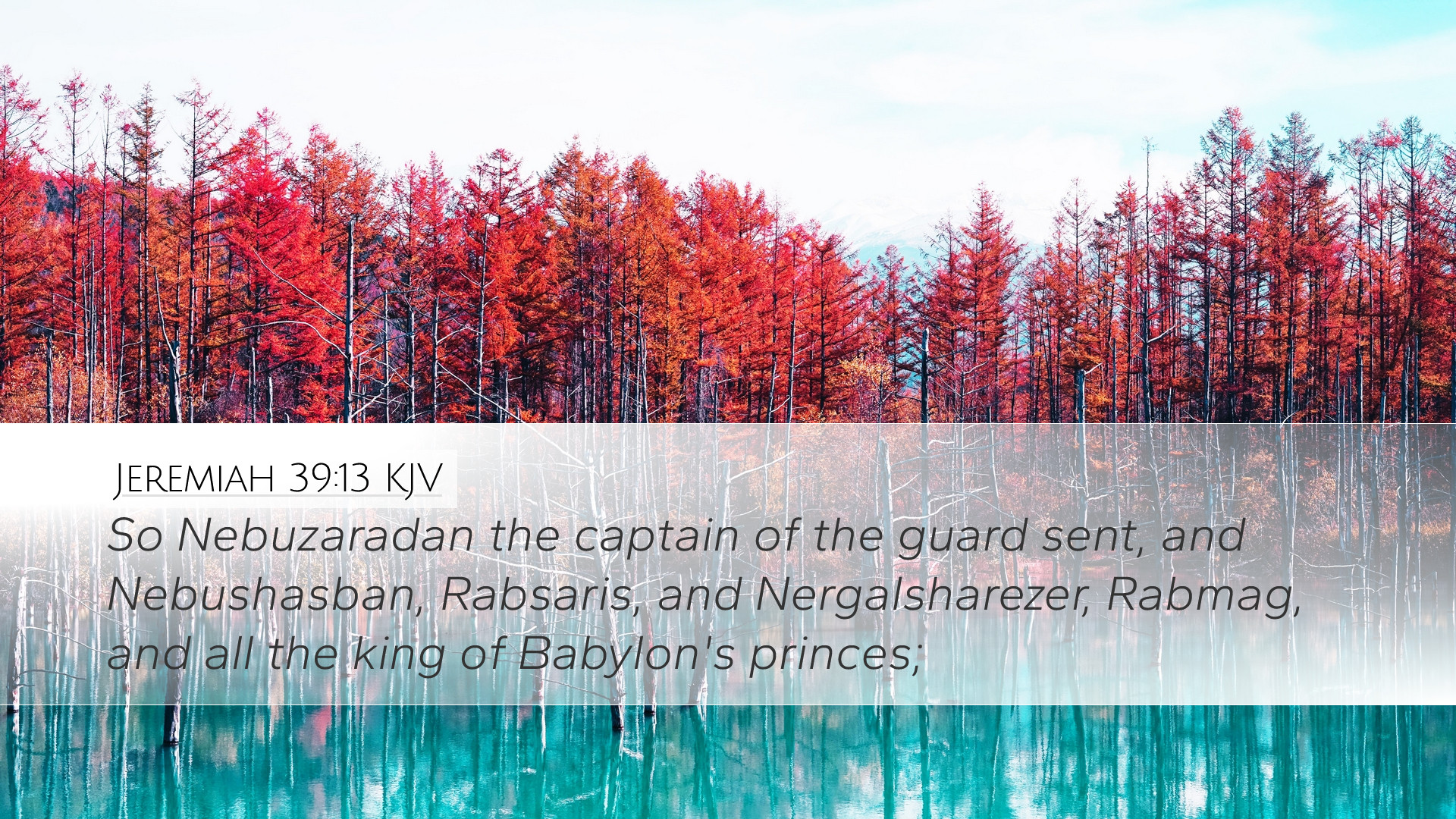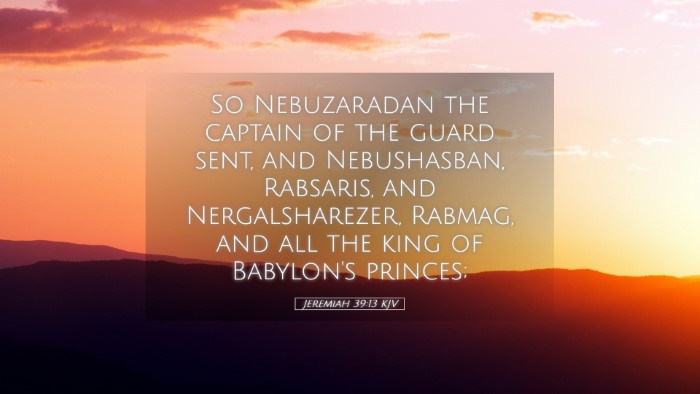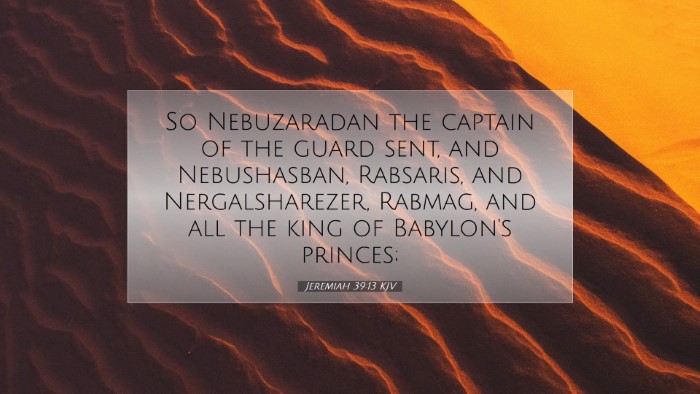Commentary on Jeremiah 39:13
Verse Context: Jeremiah 39:13 states, "So Nebuzaradan the captain of the guard sent, and Nebushasban, and Nergalsharezer, and all the king of Babylon's princes;". This verse is situated within the narrative of the fall of Jerusalem and the Babylonian captivity, emphasizing the roles of key individuals in the conquest and destruction of the city.
Historical Background
The backdrop of Jeremiah 39 involves the siege of Jerusalem by the Babylonians under King Nebuchadnezzar. This event marks a poignant moment in the history of Israel as the fulfillment of prophecy regarding the judgment of God upon His people for their idolatry and rebellion. The fall of Jerusalem serves not only as a historical event but also as a theological illustration of God's sovereignty and the consequences of disobedience.
Commentary Insights
1. The Role of Nebuzaradan: All three commentators—Matthew Henry, Albert Barnes, and Adam Clarke—discuss the significance of Nebuzaradan, the captain of the guard. Henry emphasizes Nebuzaradan's authority and interest in carrying out the king's commands as pivotal to the next stage of Israel's story. He was tasked with overseeing the captives and ensuring that the Lord’s prophecies regarding the destruction of Jerusalem came to pass.
Barnes notes that Nebuzaradan was significant not only in implementing the Babylonian policies but also in showing mercy to Jeremiah, providing a moment of hope within a generally bleak scenario. This reflects God's preservation of His prophet amidst judgment.
Clarke elaborates on the various positions held by the princes mentioned in the verse, asserting that their titles often reflect the divisions within the Babylonian hierarchy. Each of these figures played a part in shaping the fate of Jerusalem’s inhabitants and executing the Babylonians' orders.
Theological Implications
The actions of Nebuzaradan and the Babylonian princes indicate a larger principle concerning divine oversight in human affairs. 1. God’s Sovereignty: The events described in Jeremiah illustrate God’s ultimate control over history and nations. Even in conquest, God's purposes are being fulfilled, a key point emphasized by all commentators.
2. Judgment and Mercy: While the passage depicts judgment, it also unveils glimpses of mercy, particularly in how officials treated Jeremiah. According to Barnes, God's hand was evident in these small details, suggesting that the faithful remnant would be acknowledged and cared for.
Rabbinical Perspectives
In Jewish tradition, this passage is often examined in the light of the Talmud, where discussions over the consequences of Israel's actions reflect on God’s justice and mercy. The overwhelming destruction was a direct consequence of idolatry, yet God's provision for Jeremiah denotes a lingering hope for restoration and future redemption.
Applications for Today
Jeremiah 39:13 holds several applications for modern believers:
- Recognition of God's Sovereignty: In chaotic times, it is vital to remember that God reigns over all nations and circumstances.
- Faithfulness in Adversity: Like Jeremiah, believers are called to remain faithful during trials, trusting in God’s overarching plan.
- Understanding Prophecies: This passage instructs readers on the importance of recognizing God’s fulfilled promises, whether in judgment or mercy.
Concluding Thoughts
Jeremiah 39:13 invites readers to engage with a painful moment in Israel's history while also encouraging reflection on God's unbroken covenant with His people. The convergence of judgment and grace found in this text is a poignant reminder of God's relational nature, His faithfulness, and the hope that persists even in the darkest times.


